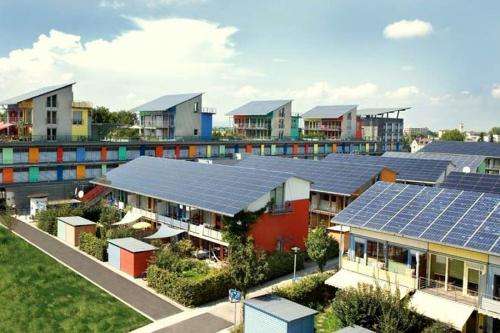Communities can drive urgent switch to clean energy

Australia will continue to lag behind countries like the United States and Germany in heeding the UN's latest call to urgently switch to clean sources of energy unless the burgeoning community energy sector is allowed to thrive, according to a UTS researcher.
Community-owned renewable energy generation in towns and cities around the country can stimulate regional development, provide more resilient and inexpensive energy security and significantly contribute to Australia's climate mitigation targets, UTS Institute for Sustainable Futures researcher Nicola Ison said.
"A growing number of communities, including local councils, are recognising this, however there are significant regulatory and institutional barriers that need to be overcome," Ms Ison said.
"Across the world renewable energy is changing the way citizens and organisations think about and use energy. In the United States, more than 1,500 wind farms are owned by communities across 27 states and in Germany, customers own two thirds of all renewable energy generated.
"Councils, as large energy users in local communities and facilitators of local action in their own right, can play an increasingly important role in this transition."
The City of Sydney has recognised the potential of community energy in its roadmap to move the city towards 100 per cent renewable energy by 2030. Sydney's Lord Mayor Clover Moore said the IPCC's most recent report has again underlined the extreme urgency of action on climate change.
"Addressing climate change will require action at all levels. Empowering communities to develop their own local, renewable energy projects will help deliver more clean energy," Cr Moore said.
"When preparing the city's Renewable Energy Master Plan, the community told us they wanted to play a bigger role in delivering our target. That is why we are so supportive of programs that help residents, businesses and landowners install and own renewable energy."
Community-owned models of power generation are popular in regional areas overseas. A leading renewable energy village in Germany, Wildpoldsried, generates more than 300 per cent of the electricity it needs from a mix of wind, solar PV, biogas and hydro power plants.
Mayor Arno Zengerle, instrumental in the village's 10-year transition to self-sufficient renewable energy, will visit Australia to encourage Australian towns to achieve the same success.
Mr Zengerle will give a key note speech at the Community Energy Congress, which will bring together community energy groups from around the country for the first time.
The congress, to be held in Canberra over 16-17 June, aims to address the large gap in support for community energy between other countries and Australia, especially in the areas of government policy, such as early-stage grants and supportive grid connection arrangements.
"In taking back control of the energy they use, thousands of communities around the world are finding it creates local jobs, lowers bills, provides secure electricity and heating while giving people an accessible way of tackling climate change," Adam Blakester of Starfish Initiatives said.
"In Australia, over one million households own solar panels but we've really only scratched the surface of the potential for community energy to transform our energy system," Mr Blakester said.
Provided by University of Technology, Sydney




















